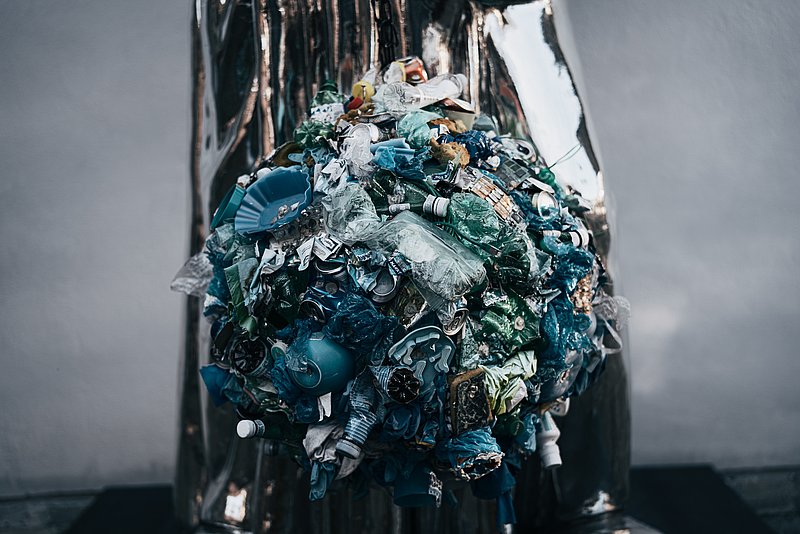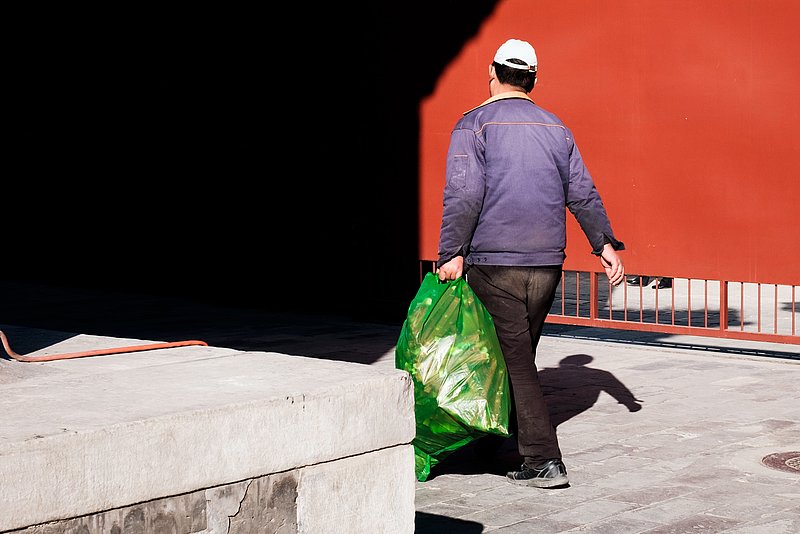The Plastic Pandemic Is Just Gaining Momentum
The worst of the Corona pandemic seems to be over. But only now is the collateral damage becoming apparent: for example, in the case of plastic. Consumption and thus pollution have increased dramatically.
Maybe you remember those beautiful pictures of turquoise blue and crystal clear water. In Venice, for example. The water was so clear that you could see the bottom in some places, even dolphins returned for a short while. That was in April 2020, a few weeks after the start of the Corona pandemic. We were also happy about this small ray of hope in the pandemic - but only briefly, as it turned out.
Because today the water of Venice looks the same as before, mass tourism has returned. And Venice is representative of the worrying development all over the world. Many people hoped that the pandemic had triggered a turnaround. The opposite is the case. Behind the scenes, pollution has been and continues to increase. In fact, the Corona pandemic has caused plastic consumption to increase by about ten percent worldwide. In China, for example, 240 tonnes of plastic waste are currently produced per day - before the pandemic it was "only" 40 tonnes. In Germany for example, this is noticeable in many places. Rubbish trucks suddenly have to pick up a lot more plastic waste, partly because many people could no longer go to restaurants and instead buy more plastic-wrapped food or order food home.
But the biggest, newly added source of plastic are those products that have become part of our everyday life for more than a year: Masks, disposable gloves and other short-lived medical products - and they are also the ones that play one of the biggest roles in adding plastic pollution to rivers and oceans. To be sure, plastic pollution in oceans was rising even before the pandemic: According to a report by the World Conservation Union, about 230,000 tonnes of plastic flow into the Mediterranean alone every year, which is equivalent to the contents of more than 500 freight containers per day. But the additional "pandemic plastic" will aggravate the situation, as a Dutch study recently showed. In the study, scientists not only examined the impact of increased plastic consumption on our oceans, but also analysed images of marine animals that died from corona plastic products, such as masks. Asian marine conservationists estimate that more than 1.5 billion masks ended up in our oceans last year.
Nevertheless, there is some good news. Recently, the European Union banned single-use plastic articles. This includes, for example, drinking straws, disposable tableware or certain drinking cups. However, restaurants and other businesses are allowed to use up stocks. In the long run, a reusable system makes more sense than a ban, because otherwise the plastic is often replaced by paper or aluminium, which also uses up a lot of resources and can be harmful to the environment. Nevertheless: We are convinced that the new law is a first important step - which hopefully will soon be followed by others in the sense of a circular economy.



